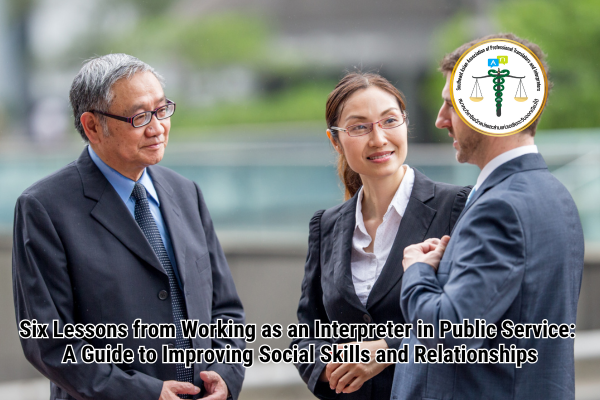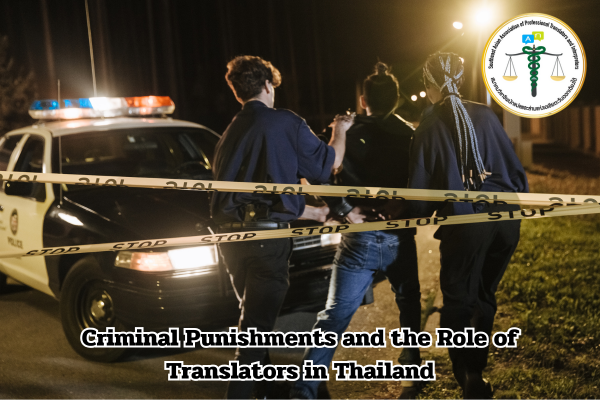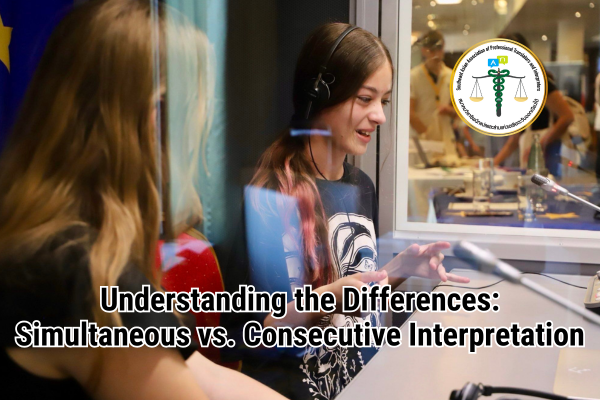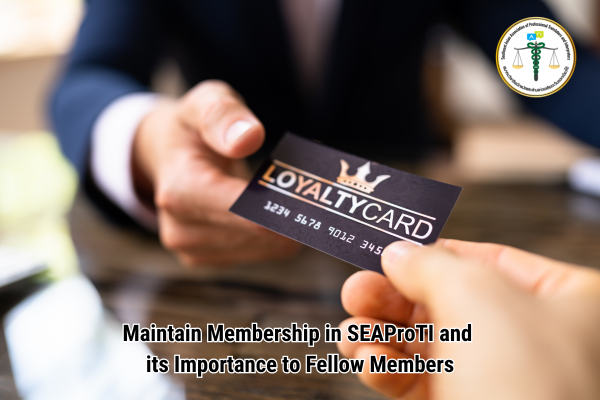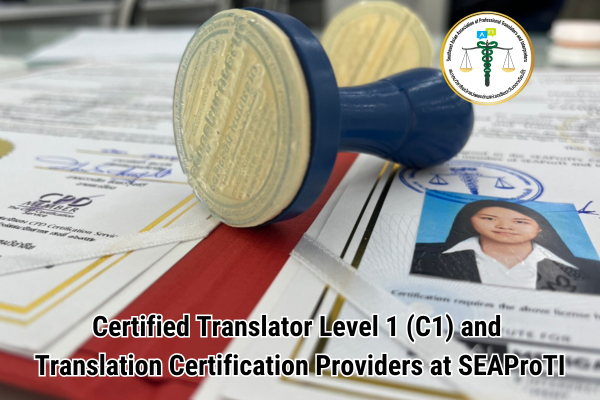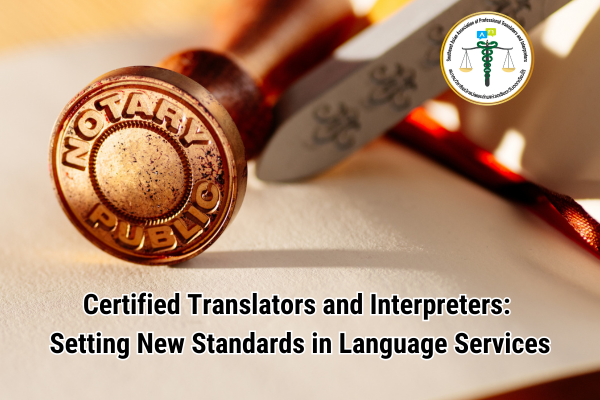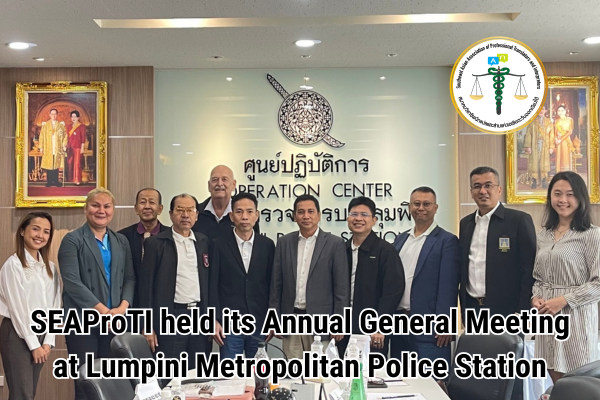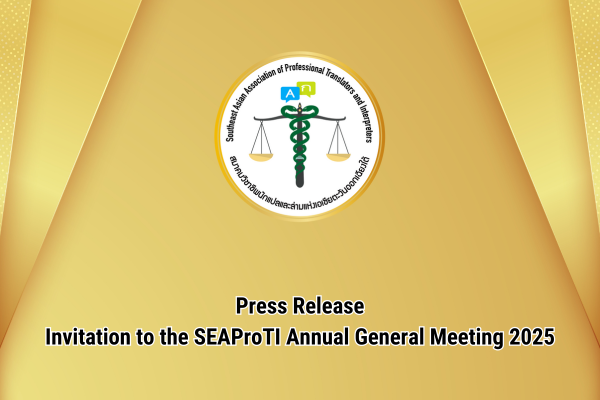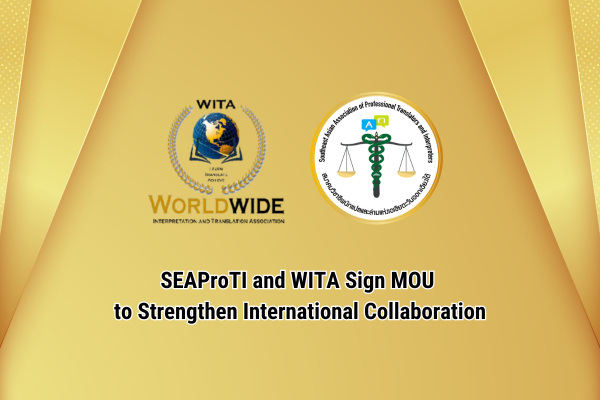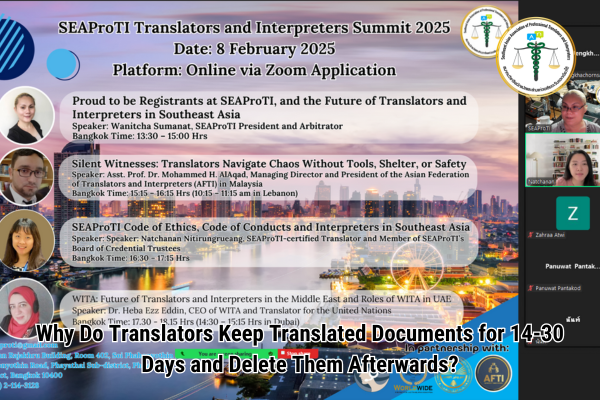Six Lessons from Working as an Interpreter in Public Service:
A Guide to Improving Social Skills and Relationships
23 February 2025, Bangkok – Working as an interpreter in public service has taught me many valuable lessons that have not only made me better at my job but also offer insights for anyone looking to enhance their social skills and build stronger relationships—especially when interacting with people facing difficulties or in vulnerable situations. Here are six lessons I’d like to share:
-
- Treat Everyone with Respect and Kindness, Regardless of Their Social Status
Public service work often brings us into contact with people from diverse backgrounds. Some may have little education or even be illiterate, often coming from impoverished families. While it’s human nature to respond differently to those of higher or lower socioeconomic status, we should consciously strive to be patient and treat everyone equally. Genuine sincerity in both verbal and non-verbal communication can make a huge difference.
- Treat Everyone with Respect and Kindness, Regardless of Their Social Status
-
- Don’t Judge Anyone
In this line of work, we witness the best and worst of humanity—from offenders to victims. There may be moments when we’re tempted to judge why someone ended up in a certain situation, but we must remind ourselves that we don’t know their full life story. Many involved in crime often come from broken families marked by poverty, neglect, or abuse. Respecting them as human beings, without judgment or further victimization, fosters mutual respect and often leads to cooperation and openness—especially with those who struggle to trust others.
- Don’t Judge Anyone
-
- Others Are Not Like You
It’s easy to think about what someone could or should have done to avoid trouble or improve their life. But the truth is, we’re often looking from the outside, from a place of security with plenty of options. People under stress—particularly those who’ve faced hardship for years—react differently, and we need to accept that difference.
- Others Are Not Like You
-
- Speak Their Language
If you want someone to feel heard and understood, reflect their way of speaking and communicate within the context they know. This builds trust and encourages them to open up, paving the way for better interaction.
- Speak Their Language
-
- Maintain Healthy Boundaries
When people see us as their only hope—especially if we share their language or understand their culture and situation—it’s easy to let our guard down, particularly when we empathize deeply. Kindness and empathy are wonderful, but they shouldn’t compromise your professional integrity. Know your limits to keep a healthy balance.
- Maintain Healthy Boundaries
- Smile Whenever Appropriate
A smile is a small but powerful gesture. It can brighten someone’s day, signal peace, make you more approachable, and reduce the other person’s defenses effortlessly.
These lessons aren’t just for public service—they’re applicable to everyday life. They’re about understanding others, staying grounded, and connecting effectively. What do you think, readers? Do you have any experiences related to these lessons you’d like to share?
SEAProTI’s certified translators, translation certification providers, and certified interpreters:
The Southeast Asian Association of Professional Translators and Interpreters (SEAProTI) has officially announced the criteria and qualifications for individuals to register as “Certified Translators,” “Translation Certification Providers,” and “Certified Interpreters” under the association’s regulations. These guidelines are detailed in Sections 9 and 10 of the Royal Thai Government Gazette, issued by the Secretariat of the Cabinet under the Office of the Prime Minister of the Kingdom of Thailand, dated July 25, 2024, Volume 141, Part 66 Ng, Page 100.
To read the full publication, visit: the Royal Thai Government Gazette
หกบทเรียนจากการทำงานเป็นล่ามในบริการสาธารณะ: แนวทางพัฒนาทักษะทางสังคมและความสัมพันธ์
23 กุมภาพันธ์ 2568, กรุงเทพมหานคร – การทำงานเป็นล่ามในบริการสาธารณะทำให้ฉันได้เรียนรู้บทเรียนมากมายที่ไม่เพียงแต่ช่วยให้ฉันทำงานได้ดีขึ้น แต่ยังเป็นประโยชน์ต่อทุกคนที่ต้องการพัฒนาทักษะทางสังคมและสร้างความสัมพันธ์ที่ดี โดยเฉพาะเมื่อต้องติดต่อกับผู้คนที่กำลังเผชิญความยากลำบากหรืออยู่ในสถานการณ์เปราะบาง นี่คือหกบทเรียนที่ฉันอยากแบ่งปัน:
-
- ปฏิบัติต่อทุกคนด้วยความเคารพและความเมตตา โดยไม่คำนึงถึงฐานะทางสังคม
งานบริการสาธารณะมักพาเราไปพบกับผู้คนจากหลากหลายภูมิหลัง บางคนอาจมีการศึกษาน้อยหรือถึงขั้นอ่านเขียนไม่ได้ และมักมาจากครอบครัวที่ยากจน แม้ว่าธรรมชาติของมนุษย์อาจทำให้เรารู้สึกแตกต่างต่อคนที่มีฐานะสูงหรือต่ำ แต่เราควรพยายามอย่างมีสติที่จะอดทนและปฏิบัติต่อทุกคนอย่างเท่าเทียม ความจริงใจในการสื่อสารทั้งทางคำพูดและภาษากายจะสร้างความแตกต่างได้อย่างมาก
- ปฏิบัติต่อทุกคนด้วยความเคารพและความเมตตา โดยไม่คำนึงถึงฐานะทางสังคม
-
- ไม่ตัดสินใคร
ในงานนี้ เราได้เห็นทั้งด้านดีและร้ายของมนุษย์ ตั้งแต่ผู้กระทำความผิดไปจนถึงเหยื่อ มีบางครั้งที่เราอาจอยากตัดสินว่าทำไมคนคนหนึ่งถึงตกอยู่ในสถานการณ์เช่นนั้น แต่เราต้องเตือนตัวเองว่าเราไม่รู้เรื่องราวชีวิตทั้งหมดของเขา ผู้ที่เกี่ยวข้องกับอาชญากรรมมักมาจากครอบครัวที่แตกแยก มีความยากจน และอาจเคยถูกทอดทิ้งหรือถูกทำร้ายมาก่อน การเคารพพวกเขาในฐานะมนุษย์ โดยไม่ตัดสินหรือทำให้รู้สึกแย่ลง จะช่วยให้เขาเคารพเรา และมักนำไปสู่ความร่วมมือและความเปิดใจ โดยเฉพาะกับคนที่มักไม่ไว้ใจผู้อื่น
- ไม่ตัดสินใคร
-
- คนอื่นไม่เหมือนคุณ
บางครั้งเราคิดได้ง่าย ๆ ว่าคนคนหนึ่งควรทำอะไรเพื่อหลีกเลี่ยงปัญหาหรือพัฒนาชีวิต แต่ความจริงคือเรามองจากมุมนอก จากจุดที่ปลอดภัยและมีตัวเลือกมากมาย คนที่อยู่ในสถานการณ์ตึงเครียด โดยเฉพาะผู้ที่เผชิญความยากลำบากมานาน มักตัดสินใจต่างออกไป และเราต้องยอมรับความแตกต่างนั้น
- คนอื่นไม่เหมือนคุณ
-
- พูดภาษาของเขา
หากอยากให้คนรู้สึกว่าเราเข้าใจและรับฟัง สิ่งสำคัญคือต้องสะท้อนและพูดในแบบที่เขาคุ้นเคยและในบริบทที่เขาเข้าใจได้ สิ่งนี้จะช่วยสร้างความไว้วางใจและทำให้เขาเปิดใจกับเรา ซึ่งนำไปสู่การสื่อสารที่ดีขึ้น
- พูดภาษาของเขา
-
- รักษาขอบเขตที่ดีต่อสุขภาพ
เมื่อคนมองเราเป็นความหวังเดียว โดยเฉพาะถ้าเราพูดภาษาเดียวกันหรือเข้าใจวัฒนธรรมและสถานการณ์ของเขา เราอาจเผลอปล่อยตัวตามอารมณ์ โดยเฉพาะถ้าเราเห็นใจเขามากเกินไป ความเมตตาและความเห็นอกเห็นใจเป็นสิ่งดี แต่ต้องไม่กระทบต่อความซื่อตรงในงาน รู้จักขอบเขตของตัวเองเพื่อรักษาความสมดุล
- รักษาขอบเขตที่ดีต่อสุขภาพ
- ยิ้มเสมอเมื่อเหมาะสม
รอยยิ้มเป็นสิ่งเล็ก ๆ ที่ทรงพลัง มันสามารถทำให้วันของใครสักคนสดใสขึ้น ส่งสัญญาณแห่งความสงบ ทำให้เราเป็นมิตรและเข้าถึงง่ายขึ้น และลดกำแพงป้องกันของอีกฝ่ายได้อย่างไม่น่าเชื่อ
บทเรียนเหล่านี้ไม่เพียงใช้ได้ในงานบริการสาธารณะเท่านั้น แต่ยังนำไปปรับใช้ในชีวิตประจำวันได้ด้วย เป็นเรื่องของการเข้าใจผู้อื่น รักษาความมั่นคงในตัวเอง และเชื่อมโยงกับคนรอบข้างอย่างมีประสิทธิภาพ คุณผู้อ่านคิดเห็นอย่างไรครับ? มีประสบการณ์ไหนที่อยากแชร์เกี่ยวกับบทเรียนเหล่านี้บ้างไหม
เกี่ยวกับนักแปลรับรอง ผู้รับรองการแปล และล่ามรับรองของสมาคมวิชาชีพนักแปลและล่ามแห่งเอเชียตะวันออกเฉียงใต้
สมาคมวิชาชีพนักแปลและล่ามแห่งเอเชียตะวันออกเฉียงใต้ (SEAProTI) ได้ประกาศหลักเกณฑ์และคุณสมบัติผู้ที่ขึ้นทะเบียนเป็น “นักแปลรับรอง (Certified Translators) และผู้รับรองการแปล (Translation Certification Providers) และล่ามรับรอง (Certified Interpreters)” ของสมาคม หมวดที่ 9 และหมวดที่ 10 ในราชกิจจานุเบกษา ของสำนักเลขาธิการคณะรัฐมนตรี ในสำนักนายกรัฐมนตรี แห่งราชอาณาจักรไทย ลงวันที่ 25 ก.ค. 2567 เล่มที่ 141 ตอนที่ 66 ง หน้า 100 อ่านฉบับเต็มได้ที่: นักแปลรับรอง ผู้รับรองการแปล และล่ามรับรอง


